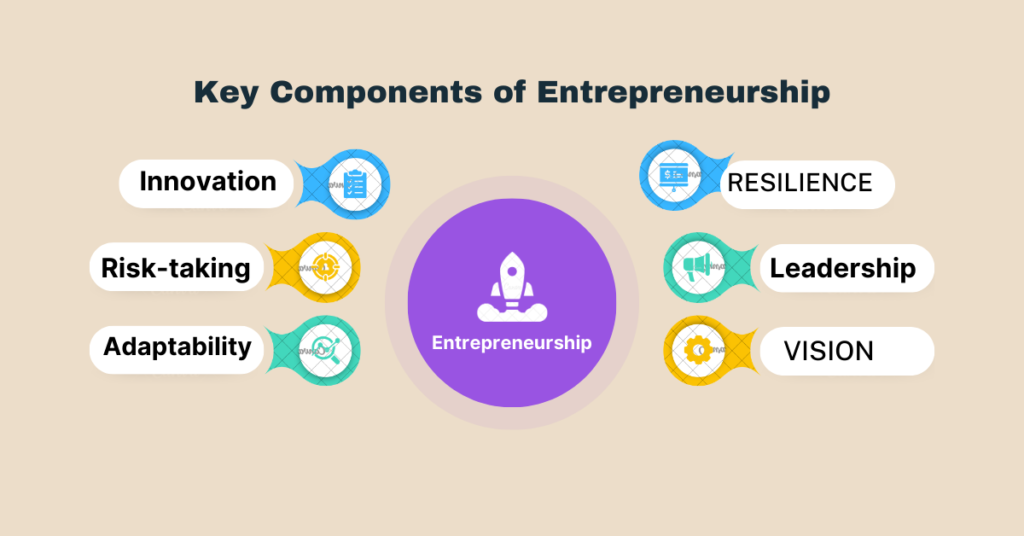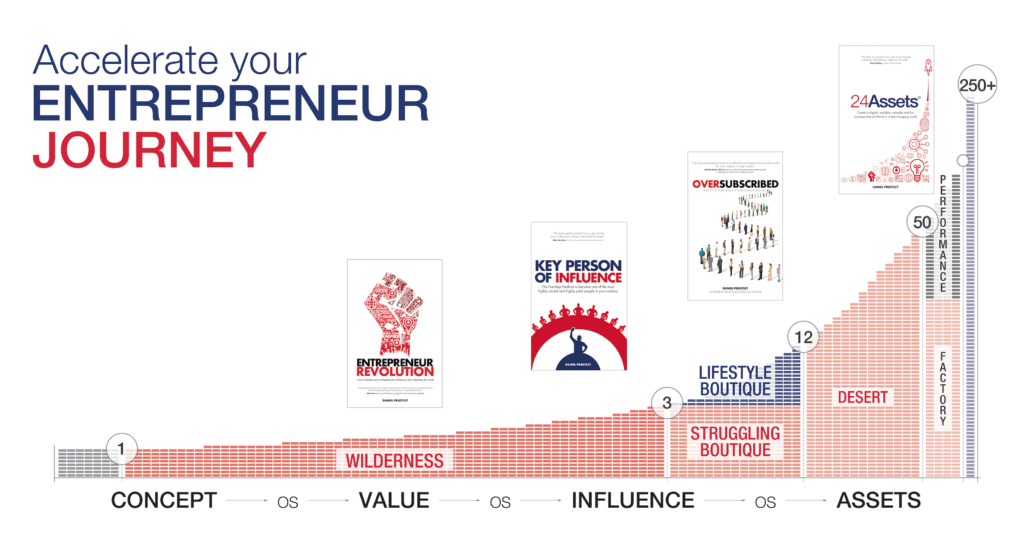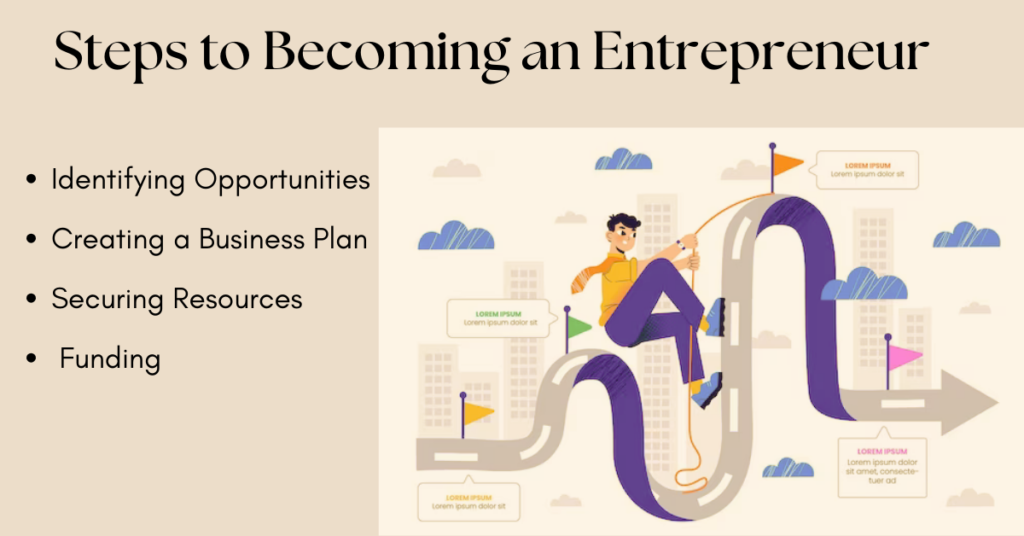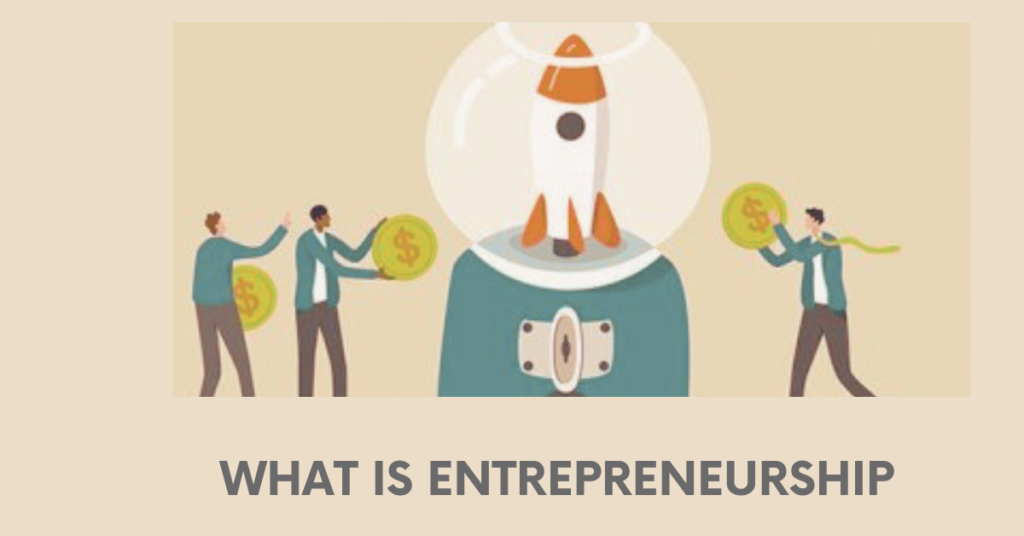Entrepreneurship, in essence, embodies the spirit of innovation, resilience, and vision. But what is entrepreneurship? It is the pursuit of opportunities, the transformation of ideas into tangible ventures, and the readiness to navigate uncertainties for creating value. In this comprehensive guide, we delve into the core aspects of entrepreneurship, exploring its nuances, significance, and impact in today’s dynamic business landscape.
What is Entrepreneurship
At its core, entrepreneurship is the art of identifying opportunities and converting them into viable business ventures. It involves the willingness to take calculated risks, harness creativity, and leverage resources efficiently. Entrepreneurs are individuals who dare to challenge the status quo, bringing forth new products, services, or solutions that cater to unmet needs in the market.
Key Components of What is Entrepreneurship
Entrepreneurship encompasses several key components, including innovation, risk-taking, and adaptability. Innovation is the cornerstone, driving entrepreneurs to ideate and create novel solutions. Moreover, risk-taking is inherent, as entrepreneurs often embark on uncharted paths, embracing uncertainty. Adaptability is crucial, allowing entrepreneurs to pivot and evolve in response to market dynamics.

| Key Component | Description |
| Innovation | Central to entrepreneurship, involves creating unique solutions, products, or services through creative thinking. |
| Risk-taking | Inherent in entrepreneurial ventures, involves embracing uncertainty and making decisions despite potential failure. |
| Adaptability | Crucial skill allowing entrepreneurs to pivot, adjust, and evolve strategies in response to changing market needs. |
| Vision | Entrepreneurial success often stems from a clear vision and the ability to see opportunities where others might not. |
| Leadership | Effective entrepreneurs lead teams, inspire, and motivate others toward shared goals and a common vision. |
| Resilience | Ability to bounce back from setbacks, learn from failures, and persist in the face of challenges and adversity. |
The Entrepreneurial Journey
The entrepreneurial journey is a thrilling adventure, full of ups and downs. It starts with an idea, where entrepreneurs conceive a vision and then work on bringing it to life. Therefore, this phase involves testing the concept, ensuring it’s viable and solving real problems.
Next comes the execution stage, where the plans take shape, and the business begins to operate. This phase demands hard work, dedication, and the ability to adapt to unforeseen challenges.
Once the business is up and running, entrepreneurs focus on scaling their venture to reach more customers, expand operations, and increase impact. This phase requires strategic thinking, resource management, and often involves seeking investments or partnerships.

Steps to Becoming an Entrepreneur
When becoming an entrepreneur, you need to take care of various factors. Including the identification of available opportunities etc. Below we will explain all the factors in detail.
Identifying Opportunities
Recognizing gaps in the market or innovative solutions to existing problems forms the foundation for entrepreneurial endeavors. Entrepreneurs keenly observe market needs and conceptualize solutions that fill these gaps.
Creating a Business Plan
A well-thought-out business plan serves as a roadmap, outlining objectives, strategies, and resources needed for execution. It provides a clear direction for the entrepreneurial journey.
Securing Resources and Funding
Acquiring necessary resources and funding is pivotal. Entrepreneurs explore various avenues, from seeking investors to leveraging crowdfunding or bootstrapping, to finance their ventures.

Key Strategies for Entrepreneurial Success
It is essential for you to develop a roadmap when putting all your efforts towards becoming an entrepreneur. Here we will explain them for a better understanding
Building a Strong Network (60 words):
Networking for entrepreneurs is akin to laying the groundwork for success. It involves forging genuine connections, nurturing relationships, and leveraging these ties for mutual benefit. Through networking, entrepreneurs gain access to invaluable resources, diverse perspectives, and potential collaborators. It’s not just about the number of contacts but cultivating meaningful relationships that can lead to partnerships, mentorship, and opportunities that fuel business growth.
Continuous Learning and Innovation (60 words):
In the entrepreneurial realm, staying stagnant is a recipe for stagnation. Entrepreneurs embrace a culture of perpetual learning, seeking knowledge in their field and beyond. This commitment to continuous improvement fuels innovation, enabling them to adapt to market shifts, identify emerging trends, and develop cutting-edge solutions. By staying updated with the latest advancements, entrepreneurs maintain a competitive edge and drive their businesses forward.
Effective Time Management
Time is the entrepreneur’s most valuable asset. Effective time management isn’t just about staying busy—it’s about optimizing productivity and achieving a harmonious work-life balance. Entrepreneurs prioritize tasks, set achievable goals, and utilize tools and techniques to streamline workflows. This approach allows them to focus on critical initiatives, delegate efficiently, and carve out time for personal well-being, ensuring sustained success without burnout.
Challenges Faced by Entrepreneurs
Financial Constraints
Entrepreneurs often face hurdles accessing adequate funding, hindering business growth. Wise financial management and exploring varied funding avenues are pivotal. Balancing investment, cost control, and seeking diverse funding sources help navigate these constraints for sustained business development.
Managing Uncertainty
Business landscapes are prone to volatility, demanding entrepreneurs to embrace uncertainty. Swift adaptation and informed decision-making amidst changing scenarios are crucial. Flexibility, agile strategies, and continuous learning enable entrepreneurs to navigate uncertainties effectively, ensuring business resilience.
Work-Life Balance
Entrepreneurs grapple with balancing professional obligations and personal life, risking burnout. Crafting effective strategies is essential to safeguard well-being. Setting boundaries, delegating tasks, and prioritizing self-care foster a healthier work-life equilibrium, sustaining both personal wellness and business productivity.
Impact of Entrepreneurship
Entrepreneurship fuels economic growth, fosters job creation, and drives innovation across industries. It disrupts traditional paradigms, introducing groundbreaking ideas that revolutionize markets. Moreover, it cultivates a culture of empowerment, inspiring individuals to explore their potential and contribute to societal progress.
Economic Growth:
- Stimulates GDP: Entrepreneurial ventures often lead to the creation of new businesses, products, and services, contributing significantly to the gross domestic product (GDP) of a nation.
- Enhances Productivity: Innovation and efficiency improvements brought about by entrepreneurial endeavors can lead to increased productivity across various sectors.
Job Creation:
- New Employment Opportunities: Startups and expanding businesses require a workforce, thereby generating job opportunities.
- Diverse Roles: Entrepreneurs often create positions across various skill levels and specializations, catering to a diverse range of talents and expertise.
Innovation and Disruption:
- Revolutionizes Markets: Entrepreneurship often challenges established industries and business models, fostering competition and leading to disruptive innovations.
- Technological Advancements: Entrepreneurs drive technological advancements, introducing new tools, methods, and products that enhance efficiency and quality of life.
Conclusion
Entrepreneurship transcends mere business; it embodies a mindset—an unwavering determination to innovate and create change. Understanding what entrepreneurship truly entails is crucial for aspiring entrepreneurs and business enthusiasts alike. Embracing the entrepreneurial spirit empowers individuals to turn dreams into reality and drive meaningful transformation.
FAQs
1. What skills are essential for successful entrepreneurship?
Successful entrepreneurship requires a blend of skills, including creativity, adaptability, resilience, strategic thinking, and effective communication.
2. How do entrepreneurs identify viable business opportunities?
Entrepreneurs identify opportunities by keenly observing market gaps, consumer needs, emerging trends, and technological advancements.
3. Is entrepreneurship solely about starting new businesses?
While entrepreneurship often involves starting new ventures, it also encompasses innovation within existing enterprises, introducing new products/services, or implementing novel strategies.
4. Can anyone become an entrepreneur?
Yes, anyone with the drive, determination, and willingness to learn can become an entrepreneur. While many entrepreneurial skills can be cultivated through experience.

